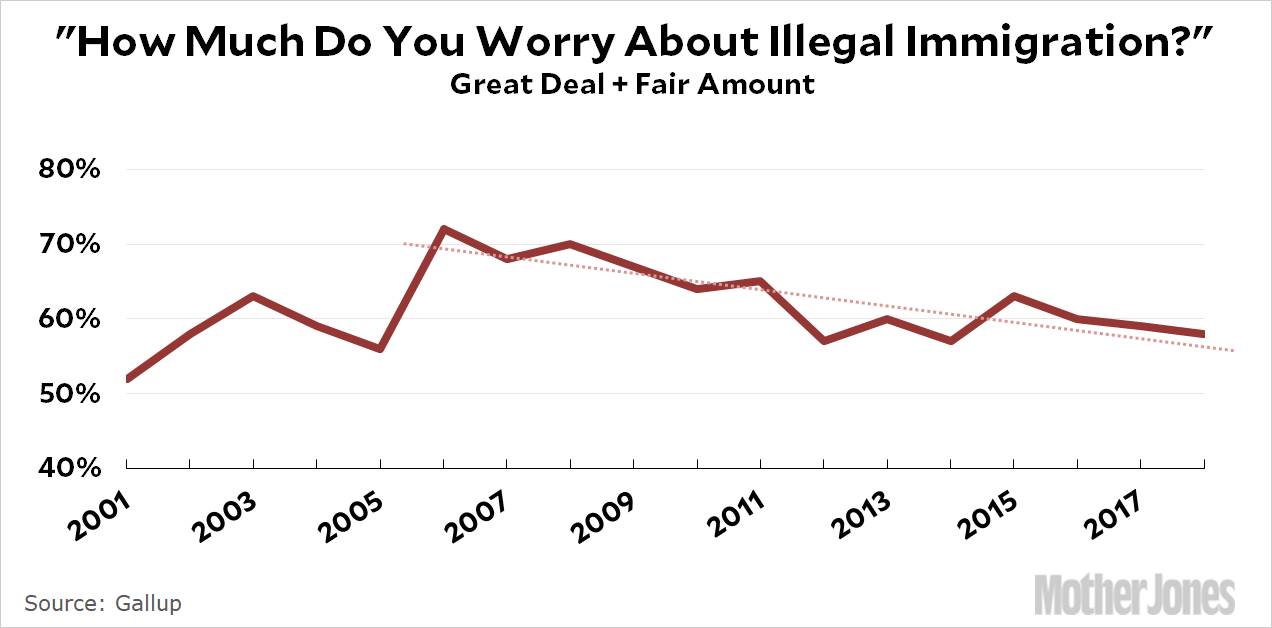David Drucker asks and answers his own question about Donald Trump’s lack of energy on immigration reform:
It’s one of the more curious aspects of this administration that Donald Trump—perhaps the most hardline anti-immigration voice in a generation—hasn’t actually been more active in pushing for a rewrite of U.S. immigration regulations. He’s demanded a raft of groundbreaking changes that would restrict both legal and illegal immigration if they ever overcame bipartisan majorities on Capitol Hill. But in 18 months, the president hasn’t bothered to lead a major effort in Congress to get it done. He’s good at creating political crises—using his executive authority to rescind DACA and to order family separation at the border—but has no instinct for solving them. He’s persistent about the construction of a wall, always looking for new and creative ways to pay for it, but hasn’t managed to secure sufficient funding from his own party.
Of course, the president’s interests aren’t entirely aligned with Republican leadership. Trump understands intuitively that his base is more energized by the thrum of battle than by a cease-fire. Congress, however, is expected to deliver results.
Trump happened on illegal immigration as a campaign theme sort of by accident, and his instincts kicked into overdrive when it turned out to be an unusually effective weapon. But he never had any actual interest in the issue beyond “build a wall and make Mexico pay for it,” so once he got in office he outsourced the whole mess to Stephen Miller and Jeff Sessions. Miller’s only goal is to prevent anything from happening, and happily, this aligns with Trump’s instinct that illegal immigration is better as a campaign issue if it’s left unsolved. After all, take a look at how it polls:

Ever since 2006, when George Bush’s immigration reform imploded, the public has become ever less concerned about illegal immigration. And why not? Since then we’ve built hundreds of miles of fencing; we hired thousands of new border patrol agents; we increased the level of deportations; and we cut down the level of illegal immigration by more than half. The result is that even after two years of the most relentless attacks on “illegals” in recent history, the response of the nation is a big yawn. The fear campaign just hasn’t worked.
Solving a problem that’s losing salience isn’t a big political winner. However, keeping your base fired up is, and there are plenty of conservatives who are still fired up about illegal immigration. For Trump, then, keeping illegal immigration alive as an issue for his base is his best bet unless Democrats can make him pay a price for it. Trump’s own-goal on DACA has given them their first chance at this in a long time, but so far Trump has calculated that it’s not enough. Democrats may have the public on their side, but they haven’t yet been able to turn that into substantial pressure on Republicans.
In the meantime, there’s not much point in “solving” illegal immigration since (a) we largely have solved it and (b) it’s steadily losing ground as a mover of broad public opinion. What’s more, anything that truly cuts illegal immigration even further—like mandatory E-Verify—is opposed by the business wing that really controls the party. Put all this together and it makes sense that hardly anyone in the Republican Party is really much interested in doing anything.

















